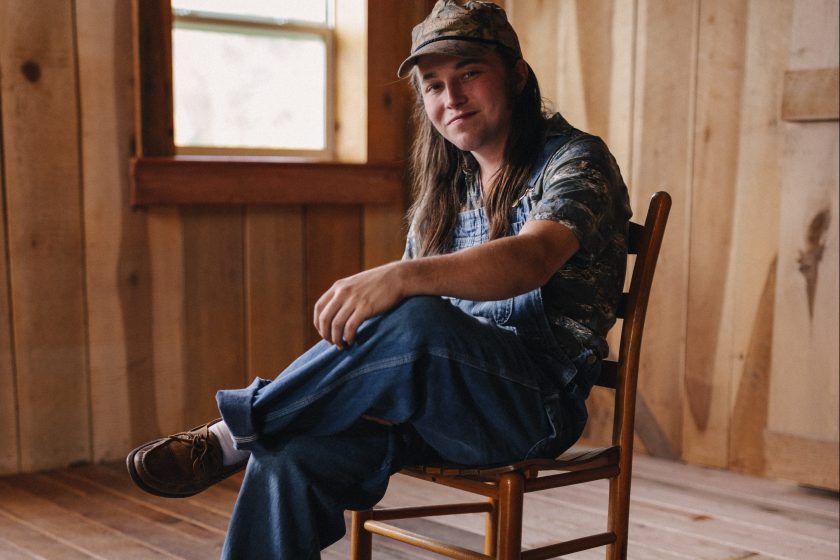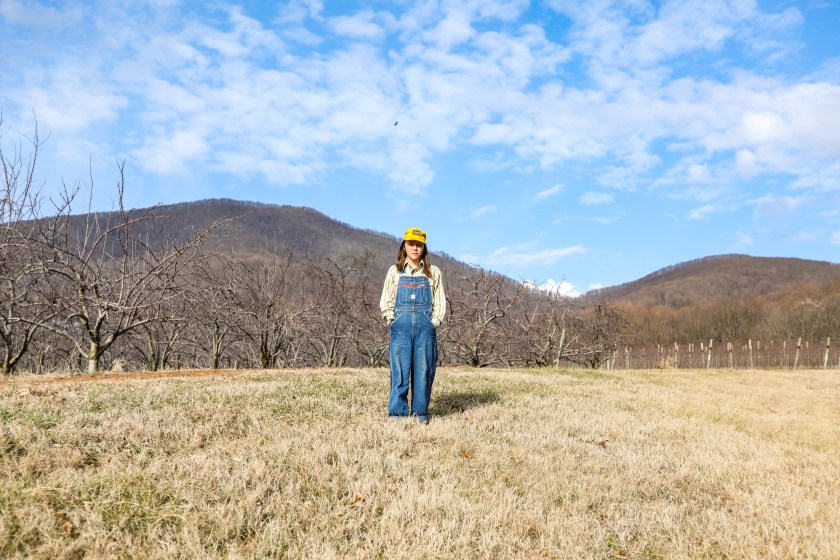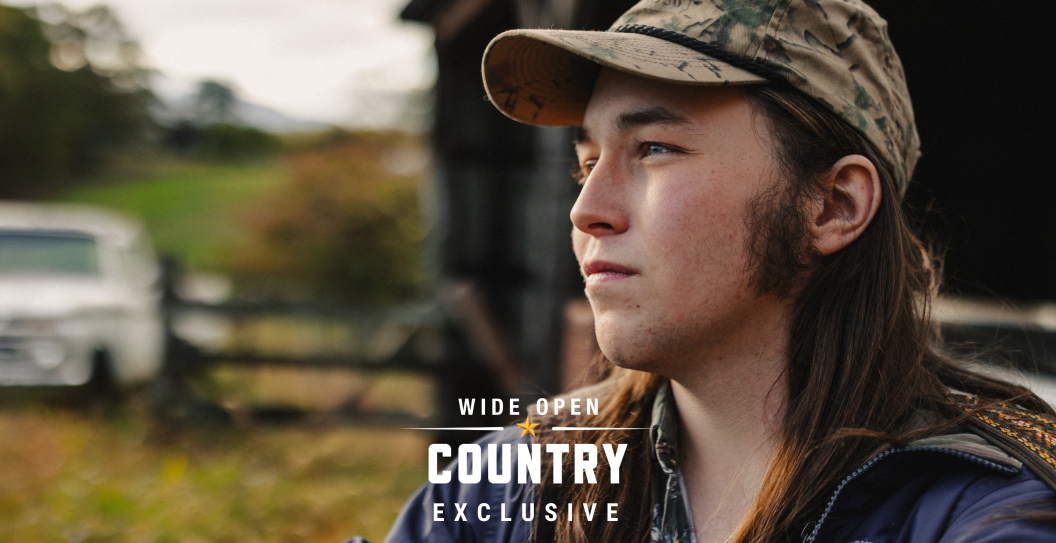A little bit country and a little bit bluegrass with a touch of blues, Colby T. Helms is poised to follow in the footsteps of other recent Southwest Virginia successes such as Folk Soul Revival and 49 Winchester.
It's a path that wasn't even on the 21-year-old's radar about a decade ago until tragedy struck and brought it into focus when his father died from cancer on Nov. 28, 2014. At the funeral, the old-time band his father once played with reunited to honor him, performing two songs that pulled at the heartstrings of the then-12-year-old.
The first was his father's favorite song, The Ozark Mountain Daredevils' "Standing on a Rock." The second was a traditional ballad, "A Beautiful Life," about a man not afraid of dying because he's done the best he can with his time on Earth. The song kickstarted Helms' musical ambitions.
"It got me thinking that if music can make me feel this way, then I can probably make others feel a certain way doing it, too," Helms tells Wide Open Country. "That's what I strive to do — bring out feelings in people that they didn't even know they had."
Out Jan. 19, Helms' full-length debut album Tales of Misfortune does just that, the centerpiece of it being the gut-wrenching "Daddy's Pocket Knife." Written in less than 15 minutes when he was only 14 years old, the song details the moment Helms found his father's day-to-day pocket knife he thought had been lost for good, tucked away in the back of a drawer at home.
This led to Helms being left speechless as memories of his father flooded his mind, eventually leading to the realization that it's now his pocket knife and legacy to carry on ("When his time on Earth was near he placed it in that drawer / Knowing one day his son would find it and carry it once more").
"When I found that pocket knife, it completely blew me away that with everything going on, my dad had thought to put it away on purpose so it wouldn't get lost," recalls Helms. "It's my most sentimental song and a small way of honoring him."

Spencer Roberts
Despite being the album's most explicit nod to his father, it's far from the only one. On songs such as "Mountain Brandy" and "First Snow," Helms takes note of the easygoing and rural way of living he was brought up on and can't get enough of. In the 1970s, his father built a tiny home into a hill — a home that the family still lives in as commercial developments creep closer and closer.
The phenomenon is one he addresses directly in the final verse of "Mountain Brandy," singing "All the old folks are dying out and the / Yanks are moving in / Lots of folks around town been griping about them old ways / coming to an end."
"A lot of my life, I've seen landscapes and lots of beautiful farms turned into subdivisions," says Helms. "It really sucks seeing the place you grew up turn into a suburb. The country way of living is becoming endangered, so this song is my attempt to preserve some of that culture before it fades away. It's one thing to hear about it, but it just hits differently when you grow up in the middle of it and can actually observe the change happening right before your eyes."

Bobby McMahon
In addition to documenting the changing geography around him, Helms' Tales of Misfortune also touches on the evolving relationships in his personal sphere. This ranges from the unrequited love of "Dreaming" to the scorned friendship within "Leanne" and imposter syndrome of "Dove Song." On the last of those, imposter syndrome manifests itself in the form of a dove hunt where Helms watches other doves with like-minded ambitions successfully fly from the brush and into the horizon while he repeatedly gets shot down every time he tries to take off in what can be described as nothing short of wizardry in the form of metaphor.
"It's a message that you can try, try, try, but sometimes you still fail and have to be able to come to terms with that," corroborates Helms. "That's why I put it right before 'Leanne.' Both songs are representative of giving it your all and still coming up short."

Guadalupe Bustos
Through his many Tales of Misfortune, Helms taps into a strength and wisdom well beyond his years. He distills the human condition into songs that are as easy to digest lyrically as they are to lose yourself dancing to. Considering his upbringing, the circumstances that led Helms to making music and the sacrifices he's made as a result (the latter of which he confronts on "Higher Ground"), it's all he could ask for.
"Growing up in a rural area, lots of people acted like being a musician wasn't a real job, but in reality being an artist is no different from any other entrepreneur trying to start a business," explains Helms. "One of the points of the song is that no matter what you do, we're all humans struggling to get by. At the end of the day, the important things in life are family, home and spending time with loved ones until you can't no more. It's my attempt to bring people together from different backgrounds that wouldn't think they had anything in common, which is exactly what music should do."




